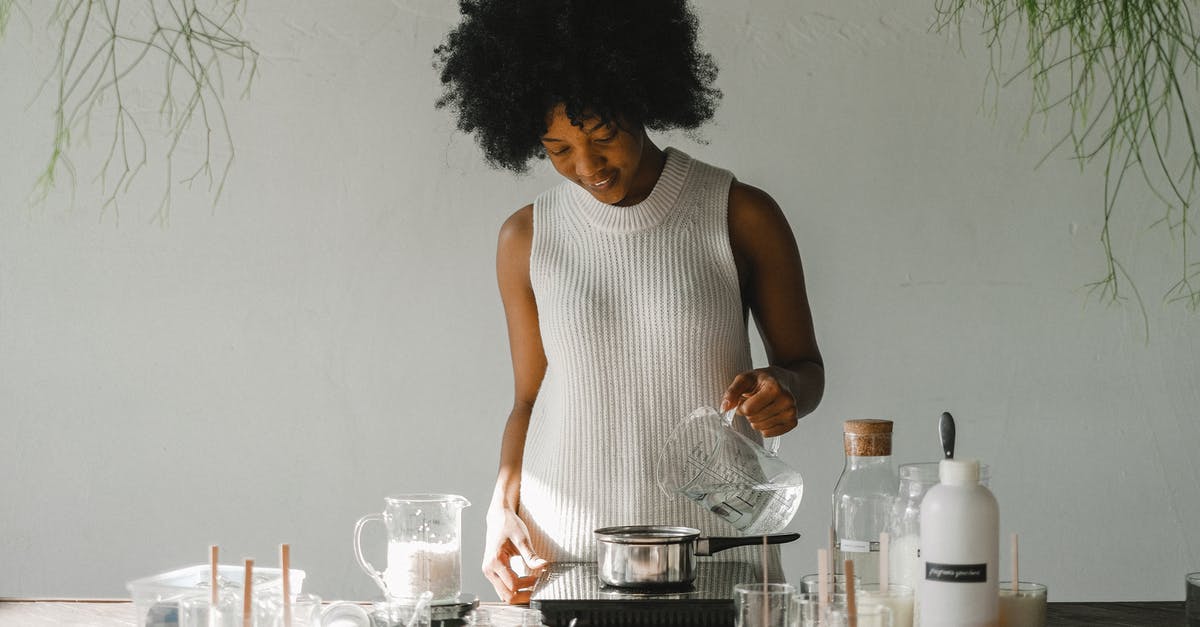Using Pressure Cooker to Make Bone Broth

I have always read that when making bone broth you should keep the heat to around 180F and do not let it get to an aggressive boil because it will emulsify the fat into the broth and also because you will lose flavor and nutrients through the boiling process. I always let mine simmer for about 2 days. I am considering opening up Bone Broth kiosk in my city and someone suggested using a pressure cooker to quicken the process. I would think this would also be considered cooking at a very high temperature. Has anyone ever used a pressure cooker for making broth and would you consider this to be a decent way of keeping the nutrients and flavor intact while speeding up the process?
Best Answer
Like @Greybeard, I've had a great deal of success using a pressure cooker to make stocks and broths quickly. Pressure cooking is, by definition, at a higher temperature than normal simmering or boiling. In those methods, the upper temperature is limited to the boiling point of the liquid (212 degrees F, 100 degrees C for pure water, a bit higher for solutions with dissolved solids such as salt). The pressure buildup inside a sealed pressure cooker actually raises this boiling point; it's the opposite of why water boils at a lower temperature at higher altitudes, and a higher temperature means generally faster cooking.
In the case of stocks and broths, this higher temperature increases the rate at which collagen hydrolyzes; basically, it untangles from its original tough, tightly-woven state and forms free-floating strands which then tangle and interconnect as the solution cools, producing the characteristic texture of gelatin.
So: a pressure cooker is good, in that it reduces the amount of time that this process takes. Rather than 8 hours of simmering, you can use a pressure cooker and get a similar amount of collagen extraction in perhaps 3-4 hours of cooking.
If you're like me, you'll take a look at this result and wonder: if I can make a great chicken stock in 3 hours, what happens if I let it cook for 12? The answer, unfortunately, is disappointing. Bones will crumble will barely any effort, but the resulting stock won't be any more viscous or tasty than a stock cooked for a shorter amount of time. What gives?
Howard McGee's classic tome On Food and Cooking offers a hint: gelatin isn't impervious; those long strands are delicate, and they can be denatured or damaged by acids or enzymes. McGee also notes what a lot of people seem to miss: at higher temperatures, collagen strands on their way to becoming a tightly-bonded network of gelatin can become damaged, or "cut" partway down their length. Instead of a dense network of long strands, you get fewer bonds between shorter strands, and we perceive this as a less "gelatinous" broth.
In other words, using a pressure cooker raises the temperature so much that it can actually damage the collagen you're trying to extract over a longer cooking time, even as it takes less time to extract in the first place. This happens much less with an extended simmer, even one measured in days, because the temperature isn't high enough cause much damage - indeed, it can't be, because it's limited by the boiling point.
There's a balance point here: a pressure cooker will allow you to produce stock comparatively quickly, but it introduces the risk of overcooking (in the sense of destroying some of the collagen you've worked to extract). 3-4 hours under pressure seems to be the sweet spot for chicken stock; turkey can go a little longer, maybe 6 hours. For a beef or pork stock, where there is much more collagen to be extracted, using a pressure cooker is still faster but almost counter-productive; you can't fully extract all the collagen you might want without damaging some. If you really want a full extraction of all the collagen present, a traditional simmer is the way to go, even though it takes longer.
That said, you may decide that the advantage of speed for a commercial enterprise is more important, and opt for something like a 6-8 hour pressure cook for pork or beef bones; I wouldn't go much more than 12 hours, personally. You might even decide on an initial extraction in a pressure cooker, followed by simmering the already-cooked bones in the traditional manner until you've extracted everything that's left. You'll want to experiment a bit as you try to make this a viable business, but I'd definitely advise being aware of this limitation before you run into some less-than-optimal batches of stock like I did. (Don't get me wrong - the end result was still good, just not any better than stock pressure-cooked for a shorter period of time.)
EDIT: Somehow I made it through this entire long-winded answer without noting that many modern electric pressure cookers are also designed to be used as slow cookers, holding a sub-boiling temperature for an extended period of time without pressure. This is great - you can safely maintain a lower-temperature extraction for an extended period of time (though you need to make sure you use the "high" setting to get above the hydrolyzation point of collagen). They can also be programmed to switch from one mode to another. I've started successfully experimenting with hybrid methods: pressure cooking for an hour to jump-start the extraction, letting the pressure release, then slow-cooking overnight before straining in the morning. If you're going to consider pressure-cooking at all, this may be a way to get the best of both worlds.
Pictures about "Using Pressure Cooker to Make Bone Broth"



Is bone broth made in a pressure cooker healthy?
Yes! Instant pot bone broth is just as healthy as any bone broth. Bone broth of any kind is healthy -especially if you're using good quality bones and cooking the bones long enough \u2013 you'll be good!Does pressure cooking destroy collagen?
In other words, using a pressure cooker raises the temperature so much that it can actually damage the collagen you're trying to extract over a longer cooking time, even as it takes less time to extract in the first place.How long to pressure can bone broth?
Bone broth cannot be water bath canned, it must be pressure canned. Put the lid on the pressure canner, and bring it to temperature. Process the bone broth at 10 pounds of pressure for 20 minutes if using pint jars, and 25 minutes if using quart jars. Wait up to 24 hours, and check the jars for sealing.Is pressure cooker better for stock?
Pressure cookers tend to have a lower volume than most stockpots (especially when you factor in the cooker's max-fill line, which indicates the maximum amount of liquid you can add), but even with this limitation, it's still the most efficient way to always have the very best stock available.Pressure Cooker Bone Broth Recipe | Danielle Walker
More answers regarding using Pressure Cooker to Make Bone Broth
Answer 2
A pressure cooker is a fantastic way of saving both time and energy. I've used mine to succesfully make both chicken stock and bone broth. The major advantage I've found is the way the gelatin etc. is extracted only after a few hours.
As far as nutrients and taste as concerned, I'd say a PC is the way to go. I put my electric pressure cooker on full pressure for 3-4 hours and the bones will easily crumble/snap.
The only reservation I would have is the final colour, which will end up cloudy. I don't know if you were intending on adding any aromatics etc. to your broth, nor if the latest generation of electric pressure cookers would alleviate this issue as you can program both pressure and cooking cycles etc.
Answer 3
You have to be careful about the type of pressure cooker that you use. Cooking Issues had an explanation, but they've either removed or rearranged, so use archive.org:
For years Nils and I have maintained that pressure cooking stocks and broths is the way to go. We’ve always said that the high temperature in a pressure cooker gives better extraction and meatier flavors than normal cooking. Turns out we were wrong. Sort of.
While I hate being wrong, this particular error taught us a lot – including:
- All pressure cookers aren’t created equal. The cooker you use affects flavor.
- Pressure cooking can be used to modify conventionally cooked stocks.
- Not all stock ingredients react the same way in the pressure cooker.
Basically, the pressure cookers that rely on escaping steam to regulate pressure don't do as well as cooking on the stove, while those that don't release steam were better than conventional cooking.
I'd really suggest reading the whole article.
Sources: Stack Exchange - This article follows the attribution requirements of Stack Exchange and is licensed under CC BY-SA 3.0.
Images: Yan Krukov, Ketut Subiyanto, Anna Shvets, Anna Shvets

